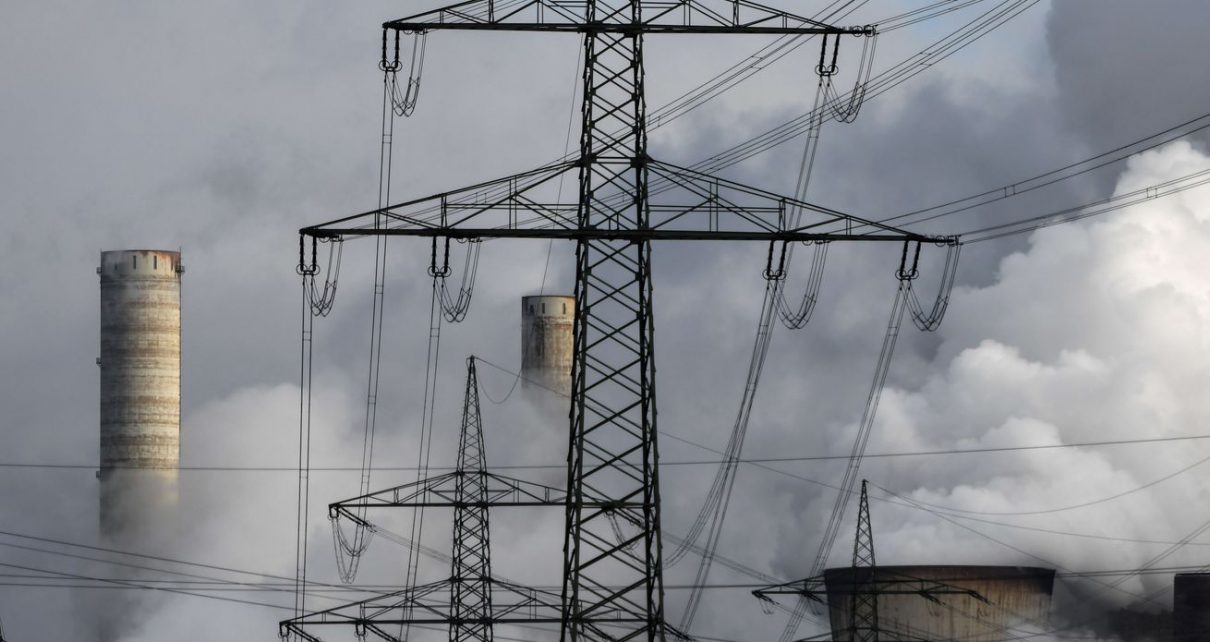
How closing tax loopholes can fund climate policy.
Governments have long tried pricing carbon to induce companies to make the kind of serious emissions reductions actually needed to address the climate emergency.
They’ve done this by imposing a carbon tax, an additional fee for each ton of carbon dioxide emitted, or through “cap and trade” schemes, which give companies limited allowances for how much CO2 they can emit and then allow them to buy and sell those allowances to offer more flexibility.
The idea is that pricing carbon will decrease CO2 emissions over time by making polluting so expensive that companies have the incentive to find cleaner ways to operate.
However, pricing carbon hasn’t been very effective at reducing emissions by the dramatic levels needed to avert the most catastrophic effects of climate change. And taxing carbon has proven unpopular in many places in the world because it usually means people have to pay more for everyday costs.
But that hasn’t stopped governments from trying it.
Jessica F. Green, an associate professor of political science at the University of Toronto whose work focuses on global environmental politics, argues that’s partly because focusing on the technicalities of carbon pricing is a good way to avoid addressing the harder problem of actually ending fossil fuel use.
“We’ve been working on how to measure carbon for 30 years and we’re still debating about or refining what it is because it’s easier to do that than it is to actually decarbonize,” Green told me.
Green argues in a new paper that climate change is not a “market failure” to be fixed through mechanisms like carbon pricing. Rather, she says, it’s “a problem of societal transformation” that requires “strong state intervention to reorganize the economy.”
Green says countries should aggressively pursue taxation (one of the basic functions of the state), but of the rich — and use the money generated to fund climate policy.
“The climate crisis has not been caused equally by everyone. Rich people cause climate problems,” Green said.
I called Green to find out more about why carbon pricing, and especially carbon taxes, haven’t worked so well and why she thinks taxing the rich might. Our conversation, edited for clarity and length, is below.
Jariel Arvin
What would you say is the main idea of your paper?
Jessica Green
If something doesn’t work very well, we should try something else. That’s the bottom line. And what we know from the empirical record on carbon pricing is that it doesn’t do a whole lot to actually reduce carbon emissions, and even less to facilitate decarbonization.
When countries do see emissions reductions, they are often from things like efficiency improvements or switching away from coal to fossil gas. These things aren’t bad, but they’re not going to get us to net-zero emissions by 2050, which is what countries have agreed to do under the Paris Agreement.
Jariel Arvin
So are you saying we should just forget about carbon pricing altogether? Do you think there’s an aspect of the policy that’s worth saving?
Jessica Green
It’s a really tricky problem, but I think, in an ideal world, we’d just get rid of it. Because today, for example, there’s an article in the Washington Post which explains how the American Petroleum Institute is strongly considering backing a carbon tax — which is a signal that this policy has been completely co-opted by the people that it’s supposed to be regulating.
When you have big, powerful oil and gas firms that are also backing a carbon tax, that should be a signal that the ideal conditions under which such a policy could function will likely not materialize, because these interests are very powerful, and they’re so entrenched in the governments that are trying to regulate them.
Jariel Arvin
What about the European Union’s experience with carbon pricing? I feel like the EU has been effective in implementing a carbon tax, right?
Jessica Green
The EU story is positive, but it has taken a long time. The EU’s Emissions Trading System was first created in 2005 and for the first three years, the program was a wash in terms of emissions reductions. (Which is understandable because they were getting the policy off the ground).
But throughout the last I would say 11 or 12 years, they’ve made a lot of improvements on the functioning of the market. Carbon prices were very volatile, but they’re now more stable — they’ve actually increased.
They have really dealt with their supply problem — because they had a huge oversupply, which was causing a glut in the market and driving down prices. They created a stability mechanism, a market stability reserve, which works like a central bank, controlling the supply.
Jariel Arvin
Sounds pretty good to me! What hasn’t the EU gotten right?
Jessica Green
I looked at the studies of the EU’s actual performance: If you try to isolate how much emissions fell because of the EU’s Emissions Trading System, estimates have only placed it at around one to three percent per year, which is not a lot.
Plus, the EU is a set of countries that are very wealthy and have a significant regulatory capacity. I mean, they are literally armies of bureaucrats who are working on this issue. And they have a lot of political will. So in many ways, the EU has been the most likely case for success — and it’s still not that great.
Jariel Arvin
So it’s a success story in a way, but it’s still not effective enough. I’d like to talk more about what you’re proposing countries do instead of, or at least in addition to, carbon pricing. The argument involves getting countries to change their tax policies to eliminate corporate tax havens, is that right?
Jessica Green
The basic idea is that each country makes its own laws about how much they tax individuals and corporations, and the rules around transparency. A handful of countries, including the UK through [overseas territories] like the British Virgin Islands, have set their corporate tax rates very low or nothing at all.
So if you are a multinational corporation like Google or Amazon, or an oil and gas company, you can say, “Okay, well, then I’m going to have some of my company incorporated in the British Virgin Islands. And if I report my profits, they will only get taxed at 3 percent, as opposed to 15 percent back in the UK. So that’s just literally money in the bank. And as long as I don’t repatriate that money to the UK, I don’t have to pay taxes on that money.”
It gets really complicated — international tax law is very complex. But there are ways you can create subsidiaries or parts of a corporation and route your money in different ways to take advantage of the most advantageous tax laws.
Jariel Arvin:
Are there any countries you’d say are worse than others when it comes to doing this?
Jessica Green:
There’s a handful: Switzerland, the Netherlands, the UK with its overseas territories and protectorates like the Cayman Islands, Jersey, the Isle of Man, and Bermuda; and the Bahamas.
Jariel Arvin
Okay, so I think I get how these corporate tax havens work and why companies use them. But how does this relate to climate change? Is it that this kind of financial secrecy enables companies to engage in bad environmental behavior without facing economic consequences?
Jessica Green
There are two ways. One is direct: We know, for instance, that [many] firms that offshore their wealth are linked to deforestation in the Amazon. These are companies that are doing bad environmental stuff, and they have money to do that in part because they offshore some of their wealth.
The second way is indirect. If you believe — as I do as a political scientist — that money is power, well: We know that fossil fuel companies are offshoring some of their profits, which makes them wealthier and therefore more powerful in their ability to influence political processes to slow down decarbonization policy.
Jariel Arvin
Closing tax loopholes seems like it would be a relatively simple thing for governments to do, so why do you think it isn’t getting done?
Jessica Green
From my perspective, it’s actually an easier political sell. Taxing the rich resonates with people a lot more than taxing carbon. First of all, people are like, “What’s carbon? I don’t know. What does that mean for me? Increased costs for the basic things that I use every day?”
On the other hand, taxing the rich is like saying countries should take care of making sure that there’s enough revenue and go get the bad guys who are not paying their fair share.
Jariel Arvin
How do countries actually go about “taxing the rich”?
Jessica Green
There are a few ways to do that. One is unilateral: Countries can just say, “If you have goods or employ people in country X, that’s where you have to report your profits, you can’t report your profits someplace else.” That’s a unilateral measure. And politically, it could be difficult. It is a question of political will.
But I think that the political sell is easier, and technically, in many ways, much less complex. We’re not arguing about how to quantify and sell the absence of a thing [which is what carbon offsets would require] — we’re talking about making rich people pay their fair share.
Jariel Arvin
Once countries do have that extra money from closing tax loopholes, how do we make sure that it actually goes to climate policy?
Jessica Green
Therein lies the rub. There’s no guarantee that the money will go to the “right” climate causes, but what it comes down to is really thinking about climate change as a question of inequality of wealth distribution. What closing corporate tax holes will do is make these corporations and individuals less rich — and that’s actually an important goal in and of itself.
Because, you know, if one percent of the global population has emitted as much as the poorest 50 percent, then climate change is really a wealth inequality problem. And so to the extent that you can constrain the extreme wealth of these actors, you’re taking a step in the right direction. That’s my best answer to that question because it’s a really hard question.
Jariel Arvin
I agree that this is definitely the question moving forward, and it’s difficult to answer as you say. But I think it’s an easier question to answer than: “How do we actually make carbon pricing work?”
Jessica Green
I think so, too. We’ve now had 30 years of experience on carbon pricing, and not a hell of a lot to show for it.





